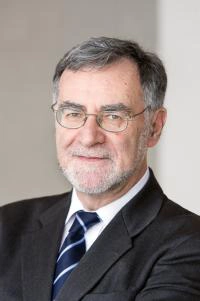Biotecnopolo and Pandemic Hub, two national strategic projects. Interview to Prof. Aime

Biotecnopolo and Pandemic Hub, Aime: “Two national strategic projects not only for innovation, but also for the development of biotechnologies and the creation of an international network for countering the major public health challenges”.
The Biotecnopolo di Siena Foundation is a nonprofit, private legal entity with registered office and operational headquarters in Siena. It’s a project aimed at developing applied research in the field of biotechnologies and life sciences that stems from the desire of four Italian Ministries to converge all R&D activities of our country, with a specific focus on national biosecurity. The goal is to provide our country with a reference point that can count on the best scientific expertise and that can assure a coordinate management of potential future public health crises thanks to a solid network with other similar institutions at international level. We asked Silvio Aime, President of the Biotecnopolo di Siena Foundation, Professor of Chemistry at the Faculty of Sciences, degree course in Biotechnologies, and head of the Center for Molecular Imaging at the University of Torino, his personal thoughts.
Professor Aime, how was the Biotecnopolo Foundation born and what are its aims?
The Biotecnopolo di Siena Foundation was born in December 2021 with an ambitious mission both from a scientific (R&D for mobile solutions in biomedicine) and operative (technology transfer, spin offs, entrepreneurial initiatives) point of view. The Foundation operates under the supervision of four Italian Ministires (Ministry of University, Ministry of Health, Ministry of Economy and Finance and Ministry for Business and Made in Italy). As stated in the statute – which was approved in July 2022 – the Biotecnopolo will also function as pandemic hub (“Centro nazionale anti pandemico”, or CNAP), for which 340 million euros have been allocated to implement R&D activities aimed at preparing our country to face the emergence of new pandemics. Therefore, for the first few years, the pandemic hub will be at the heart of the many activities that the Foundation will carry out. The CNAP will not only count on a multivalent cGMP pilot plant capable of producing the needed number of doses to conduct clinical trials and to carry out the initial emergency response, but also on both national and international highly qualified staff.
Has the COVID-19 pandemic influenced the choice to focus on pandemic risks?
Of course. Our goal is to conduct research activities aimed at developing medical countermeasures to be better prepared than we were when the Covid-19 pandemic broke out. In our laboratories, we are going to engage in several activities related to the development and production of vaccines and monoclonal antibodies for the treatment of emerging epidemic-pandemic diseases. Particular attention will be also paid to antibiotic resistant bacteria. In fact, antimicrobial resistance is a public health concern that represents a great challenge for scientific research. Our experience with Covid-19 has taught us that, apart from R&D activities - which we will focus on in the Biotecnopolo/CNAP laboratories - we need to pay further attention to other fields such as diagnostics, antivirals, carriers (lipid droplets, extracellular vesicles) and the production of plant-based proteins. On all these matters, we will support research doctorates that students will be able to pursue from different Italian universities. Through the support given to Universities and Public Research Institutes, we will respond to our mission, i.e., becoming a project of national significance that cooperates with the major international excellences in the field of biotechnological application in biomedicine. Not only that, but we will also cooperate with the scientific community to encourage interactions on a wide range of innovative topics that underlie the mission of our Foundation, starting from the PNRR initiatives “Centro per lo sviluppo di terapia genica e farmaci con tecnologia a RNA” (lit. Center for the development of gene therapy with RNA technology) and “Centro per la simulazione, calcolo e analisi dei dati ad alte prestazioni” (lit. Center for simulation, calculation and analysis of high-performance data). We are going to build a network of laboratories and expertise (for example in Structural Biology, Imaging) to create a synergy whose objective is to contribute to the development of biotechnological innovation in our country.
Why Siena?
Siena holds the history of vaccines: from Sclavo to Chiron and Novartis, and now GSK. This territory is steeped in knowledge and experience, and I think our government took the right decision in recognizing the value of Siena. In addition to that, the Biotecnopolo has offered the Toscana Life Sciences (TLS) Foundation the possibility to become founding member of the Biotecnopolo Foundation – possibility that was immediately accepted by TLS, who thus became the fifth founding member (the other four being the abovementioned Ministries). We mustn’t forget that, within the walls of TLS, Professor Rino Rappuoli, one of the world’s leading experts in vaccinology, former head of vaccine R&D at GSK and now scientific director of the Biotecnopolo Foundation, is at the helm of several laboratories whose research areas – financed by a European founding and other contributions - are aligned with the activities of the pandemic hub. The cooperation between TLS Foundation and Biotecnopolo Foundation will allow us to get access to fully equipped laboratories and highly qualified staff, thus saving valuable time compared to the situation we would have been in if we had started from scratch.
What kind of resources have been allocated for this important project?
Last December, the Scientific Technical Committee of the Biotecnopolo Foundation, based on the input of the Scientific Director, has approved the multi-year program plan for the activities (“Piano Programmatico Pluriennale”), now positively assessed by the board of directors of the Foundation. The abovementioned plan takes account of the resources allocated for the Biotecnopolo Foundation and for the Pandemic Hub, and defines the areas of research and activity, including the need to acquire new spaces that will bring the Foundation’s activities up to speed. The future of the Biotecnopolo stands on an important investment by the Italian government that counts 37 million euros until 2024, and 16 million euros starting from 2025. The Pandemic Hub, on the other hand, has its own dedicated resources: 340 million euros until 2026 (as established by the complementary actions of the PNRR). Until 2026, the multi-year program plan will include the recruitment of highly specialized staff that will become, in turn, the driving force behind the training of other specialists in the key sectors of the pharma industry.
4 April 2023
DISCOVER MORE

DISCOVER MORE
